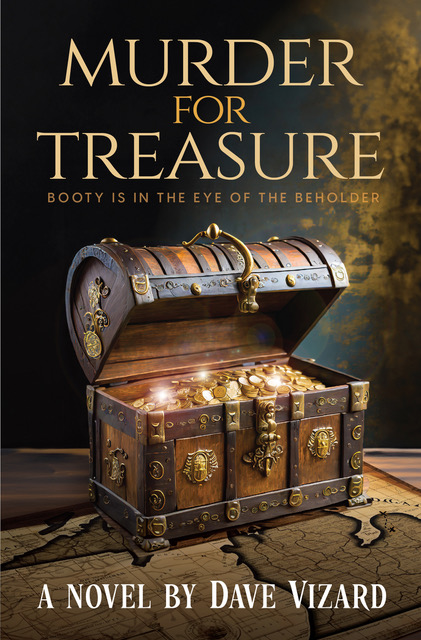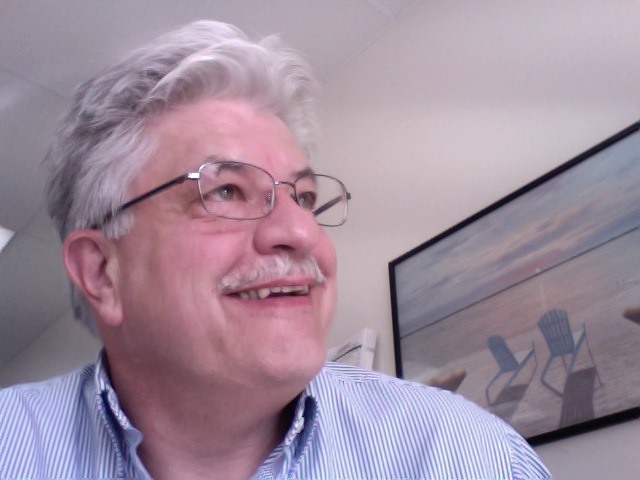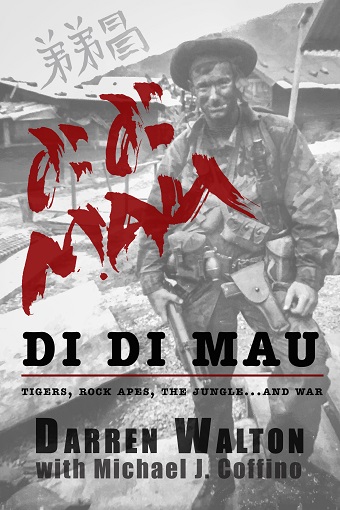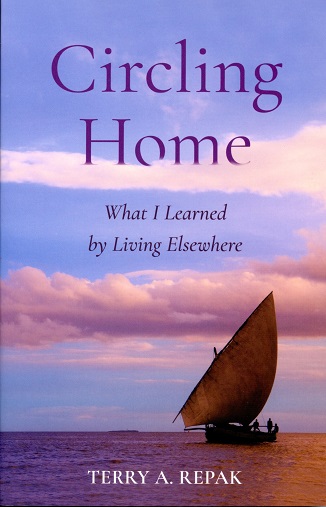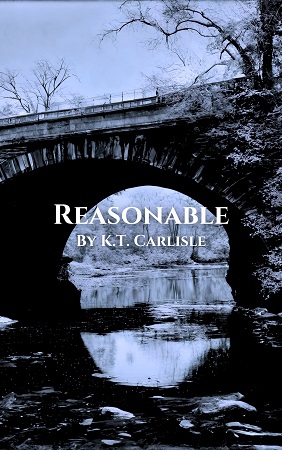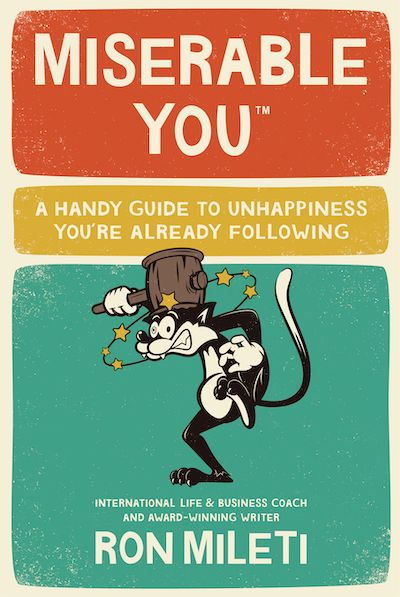In addition to the handful of regular cast members in my series, I developed a colorful group of key players and witnesses to help tell the story. Creating a lively cast and generating dynamic dialog is the fun part...
In addition to the handful of regular cast members in my series, I developed a colorful group of key players and witnesses to help tell the story. Creating a lively cast and generating dynamic dialog is the fun part of writing for me. By the time I’m done, I thoroughly enjoy my characters, even the despicable ones.
Dave Vizard – 14 December 2023
The Back Flap
Long-lost sunken treasure becomes the link between a double murder and an attempted murder in Michigan’s Thumb region. Follow news reporter Nick Steele as he tracks the clues leading to the killers and the booty – silver and gold – in this fast-paced thriller.
About the book
What is the book about?
Murder for Treasure is a double-murder mystery, a wild hunt for long-lost treasure, and a touching newspaper story all rolled into a fast-paced page burner.
When did you start writing the book?
I started writing the book at the end of July, 2023. I had cervical fusion in May after a spinal cord injury left me with loss of feeling in hands and legs. I spent six weeks in a horse-collar neck brace, 24-7, mostly flat on my back, which gave me plenty of quiet, lonely time to work out the storyline, plot points, and characters for the novel. Thinking through the story kept me from going nuts as I worked at getting my fingers and hands to do what my mind commanded.
How long did it take you to write it?
I finished writing the first draft after Labor Day weekend, so about eight weeks. Then I took a week break from the story before launching into a vigorous re-write.
Where did you get the idea from?
About two years ago I attended a Lions Club meeting where our evening program was a presentation by Robert McGreevy, a noted artist who paints ships of the Great Lakes. One segment of the presentation focused on his rendition of the R. G. Coburn, a steamer that sank off the tip of the Thumb region of Michigan in Lake Huron during a ferocious storm in 1871. About half the 75 passengers and crew on the ship were killed and its cargo of grain and raw silver ore lost. The sunken ship and its cargo, including an unknown amount of silver ore, have never been found. McGreevy’s tale stuck with me, and I researched the ship, its crew and passengers, and cargo. I thought it was a juicy historical event that I could build a murder mystery and treasure hunt around. The result: a 258-page, 75,000-word, 22 chapter novel that became the seventh installment of the Nick Steele Mystery Series.
Were there any parts of the book where you struggled?
I always agonize over the details of the murder mystery. This story is primarily told through the POV of my sleuths, Nick Steele and his sidekick Dave Balz. So, readers get information as the news reporters dig up facts unraveling the mystery. And since I’m not a cop or a lawyer, I rely on my oldest son, a public defender in Michigan, and a retired circuit court judge I became friends with when I was a newspaper editor, to help navigate tricky aspects of the law.
What came easily?
The characters. In addition to the handful of regular cast members in my series, I developed a colorful group of key players and witnesses to help tell the story. Creating a lively cast and generating dynamic dialog is the fun part of writing for me. By the time I’m done, I thoroughly enjoy my characters, even the despicable ones.
Are your characters entirely fictitious or have you borrowed from real world people you know?
Both. My newsroom characters are developed from people I have known or worked with through 40 years in newspapers and magazines. My primary sleuth, Nick Steele, is a combination of the best reporters I’ve come across. He is passionate about his work, driven to find the truth, and cares about the people he writes about. I also stole his name from one of my old high school buddies (with his permission, of course) simply because I liked the strong, two-syllable sound of it. Plus, Nick Steele, makes a great byline. My supporting cast of characters is mostly fictious, but their mannerisms, speech patterns, and eccentricities are drawn from the thousands of people I have interviewed as a journalist. Plus, I love to eavesdrop when out in public. I make a practice of listening to how people – both friends and strangers – speak to each other. The conversations overheard at nearby tables in restaurants is so often fascinating and enlightening. It’s amazing what can be learned about people simply by listening to them interact.
We all know how important it is for writers to read. Are there any particular authors that have influenced how you write and, if so, how have they influenced you?
I love good storytellers. Richard Ford, Tana French, Harlan Coben, Jodi Picoult, John Grisham, Louise Penny just to name a few. I like the different ways they craft their narratives, develop rich dialog, and spice it with sly humor.
Do you have a target reader?
Vacationers who are educated and make a decent living. I aim for professional folks who are relaxing and picking up a good story to enjoy in their free, private time. My books sell well in resort areas and I’m grateful for that.
About Writing
Do you have a writing process? If so can you please describe it?
When I’m ready to start writing (after lots of research and thinking), I throw myself into a regular, daily writing routine. What works best for me is carving out a 2-3 hour window in the early morning, starting at 5 or 6 a.m. No distractions: cell phones, internet, social media, TV, loved ones, friends, neighbors, pets – all turned off. Strong, fresh coffee and dry Cheerios. Just me and my laptop. I plunge in and write until tired or spent. Then, I walk away and come back to the story later in the day after my mind has tossed around what I’ve written like a clothes dryer tumbling wet jeans. Then I re-write my work and start plotting out what I want to write the next morning.
Do you outline? If so, do you do so extensively or just chapter headings and a couple of sentences?
I use what I call a Rolling Outline, which means I start out with a general Beginning, Middle, and End. I write chapter to chapter or scene to scene and fill in the rolling outline as a I go, sometimes backing up and starting anew or going in another direction. But I always keep the Rolling Outline updated through the process. I also develop a separate cast of characters, detailing their personal information, including personality, dress, style, and mannerisms.
Do you edit as you go or wait until you’ve finished?
I write and re-write continuously. As my mind keeps tumbling the story after I’ve stepped away from writing, I often think of new descriptive detail, sharper dialog, or better scene-setting. If I’m not near my laptop during moments of inspiration, I jot it down in a notebook or in notes on my cell, then turn it into perspiration when I start writing again. There are times when I’m totally immersed in a story, that these moments of inspiration wake me from sleep. I always try to record these thought bursts before they are lost or buried.
Did you hire a professional editor?
Yes. I learned long ago that every writer needs an editor. I want someone I know and trust looking over my shoulder.
Do you listen to music while you write? If yes, what gets the fingers tapping?
Most of my novels have been written with the smooth whispers of Motown in the background.
About Publishing
Did you submit your work to Agents?
I went through the query and pitch process with agents and publishing house reps with my first two books. In both cases, they liked the storylines but wanted me to change characters and locations to reach a broader audience. Ultimately, I decided that I didn’t want to write what I thought would be formula stories, so I decided to go on my own.
What made you decide to go Indie, whether self-publishing or with an indie publisher? Was it a particular event or a gradual process?
My first book was a bucket-list checkoff. I wanted to write a novel after a long and successful career as a journalist. I had no expectation for the first story and was quite surprised when it was well-received. The second story was a bigger hit than the first, so I decided to write a third. By the fourth novel, I thoroughly enjoyed the whole process of writing and self-publishing and realized I had a pretty good series and was developing a strong following of readers. It’s been growing since then. Now, I get paid to put on writing and publishing workshops.
Did you get your book cover professionally done or did you do it yourself?
I develop the theme for the cover but always hire a graphic artist to complete it.
Do you have a marketing plan for the book or are you just winging it?
I do my own marketing, which includes judicious advertising, news releases, reviews, book signings, and book presentations. I’ve also worked out financial agreements with individual retailers to sell my books. I sell books in grocery stores, gift shops, hardware stores, convenience stores, pharmacies, coffee shops, and local independent (new & used) bookstores.
Any advice that you would like to give to other newbies considering becoming Indie authors?
Be prepared for a lot of hard work before, during, and after the actual writing process. Don’t be deterred by all those who will say, “No!” Just work harder. If you believe in what you are doing, stick with it. Don’t let the bastards beat you down!
About You
Where did you grow up?
A cattle farm in the Thumb region of Michigan.
Where do you live now?
Near the shores of Lake Huron in the Thumb region of Michigan (where we used to vacation and recreate when I was a kid busting my butt on the farm).
What would you like readers to know about you?
My first paying job as a writer was in 1968 when I was 16 and received 5 bucks for each high school sports story accepted by the Mayville Monitor. I’ve been reading and writing every day since then. My last story will be my obituary, which I am continuously re-writing and praying goes through many more updates.
What are you working on now?
A story about an environmental disaster waiting to happen. It involves a controversial oil pipeline that runs along the floor of Lake Huron between the Lower Peninsula of Michigan and Mackinac Island. News reporter Nick Steele is going to solve a string of murders while heading off eco-terrorists threatening to pollute the Great Lakes. Stay tuned.
End of Interview:
For more from Dave Vizard visit his website and follow him on Twitter.
Get your copy of Murder for Treasure from Amazon US or Amazon UK.
The post IndieView with Dave Vizard, author of Murder for Treasure first appeared on The IndieView.



